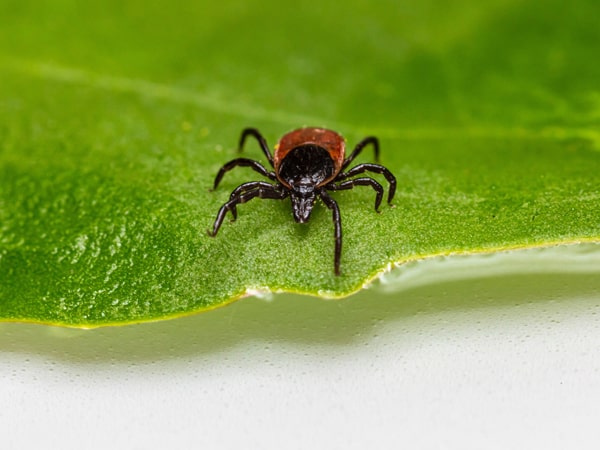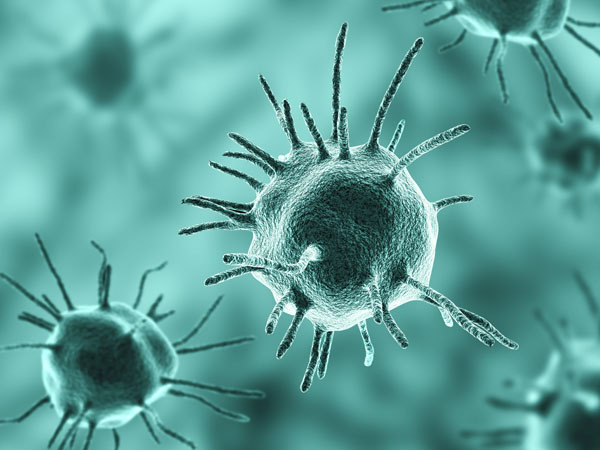Lyme disease (LD), which is spread to humans through infected black legged tick bites, is an illness that can lead to severe symptoms if left untreated.
Disulfiram, though, has recently entered the medical world as a new therapeutic approach to treating Lyme disease. This is a potential new drug candidate against Borrelia burgdorferi, the bacterial species behind Lyme disease.
In a 2016 study, disulfiram inhibited 99.8% of Borrelia burgdorferi growth in a stationary phase culture versus the untreated control. Additionally, in 2017 an uncontrolled open-label trial with three Lyme patients with ongoing neurological symptoms improved within 6 to 18 weeks of disulfiram treatments, remaining well for 6 to 23 months.
Even after routine Lyme therapy, ongoing neurologic and systemic symptoms may persist, which has been termed post-treatment Lyme disease syndrome (PTLDS). This article will analyze disulfiram’s role in treating persistent LD.
First off, what is disulfiram?
Disulfiram is a known anti-alcoholism drug. Upon consumption of alcohol, the body breaks down the alcohol into acetaldehyde, which causes a hangover. The body oxidizes acetaldehyde into acetic acid. Disulfiram, however, stops the enzyme acetaldehyde dehydrogenase from converting acetaldehyde into acetic acid. Therefore, those who take disfuliram while drinking alcohol will have a build-up of acetaldehyde, leading to unpleasant symptoms (i.e. nausea, vomiting, sweats, flushing, headaches).
Is disulfiram effective against Lyme disease?
It is believed that disulfiram may act as an antimicrobial agent against Lyme persister cells, spirochetes (corkscrew-shaped bacteria that causes Lyme), and babesia (a small parasite that infects blood cells with an infection called babesiosis).
Research suggests that the drug might be effective against gram-positive bacteria and one of the main parasites that causes malaria, Plasmodium falciparum. The metal ions zinc and manganese are necessary for B. burgdorferi metabolism and survival in the human body. Disulfiram may inhibit their metabolism due to its high affinity for metal ions.
The effectiveness of disulfiram has not been assessed in large clinical trials, but scientists have noted that disulfiram may decrease the symptoms in some – but not in all – patients receiving it as persistent anti-LD treatment.
Are there any adverse effects to taking disulfiram?
Disulfiram is a generally safe drug. Common side effects reports include nausea, headaches and fatigue. Further adverse effects may include:
- Convulsions
- Encephalopathy
- Cranial neuropathy
- Toxic optic neuropathy
- Peripheral neuropathy
- Hypertension
- Psychosis
How long is treatment?
The duration of the treatment is usually 3 to 6 months. Alcohol consumption is prohibited, as it could lead to disturbing symptoms. (Take note: alcohol may be found in various drinks and foods, such as sauces and vinegars.)
Can disulfiram work for anyone with Lyme disease?
Over 12,000 people have joined various Facebook groups such as “Disulfiram for Lyme Support Group” and “Disulfiram/Antabuse Lyme Success Stories,” where they share their anecdotes of using the therapy for Lyme disease.
Although, anecdotally, disulfiram has shown the improvement of symptoms in some patients being treated by a Lyme-literate doctor, more clinical trials are required. This is because we need to fully understand the long-term outcomes of this medication. A small 14-week randomized placebo-controlled pilot study of 24 patients with post-treatment Lyme disease syndrome is underway and is expected to be completed in late 2021.
Should you take disulfiram for your Lyme symptoms?
To find out if disulfiram is right for you, we strongly suggest speaking to your health care practitioner. At our clinic, we offer integrative functional medicine, in which our practitioners consider each individual’s biology and lifestyle for treating medical concerns.
With that, if Lyme disease is affecting your quality of life, please don’t hesitate to contact our clinic. Dr. Amauri Caversan, ND, and Arv Buttar, NP, have built integrative and functional medicine programs for their patients. Their Lyme Disease: Integrative Treatment program consists of a personalized naturopathic and conventional medical approach to patients suffering from Lyme symptoms. Please call our clinic at 416-922-4114 to schedule your appointment.
References:
de Melo RC, Lopes R, Alves JC. A case of psychosis in disulfiram treatment for alcoholism. Case Rep Psychiatry. 2014;2014:561092. doi:10.1155/2014/561092
Feng J, Shi W, Zhang S, Sullivan D, Auwaerter PG, Zhang Y. A Drug Combination Screen Identifies Drugs Active against Amoxicillin-Induced Round Bodies of In Vitro Borrelia burgdorferi Persisters from an FDA Drug Library. Front Microbiol. 2016;7:743. Published 2016 May 23. doi:10.3389/fmicb.2016.00743
Hotson JR, Langston JW. Disulfiram-induced encephalopathy. Arch Neurol. 1976;33(2):141-142. doi:10.1001/archneur.1976.00500020069012
Kulkarni RR, Bairy BK. Disulfiram-Induced De Novo Convulsions without Alcohol Challenge: Case Series and Review of Literature. Indian J Psychol Med. 2015;37(3):345-348. doi:10.4103/0253-7176.162942
Liegner KB. Disulfiram (Tetraethylthiuram Disulfide) in the Treatment of Lyme Disease and Babesiosis: Report of Experience in Three Cases. Antibiotics (Basel). 2019;8(2):72. Published 2019 May 30. doi:10.3390/antibiotics8020072
Long TE. Repurposing Thiram and Disulfiram as Antibacterial Agents for Multidrug-Resistant Staphylococcus aureus Infections. Antimicrob Agents Chemother. 2017;61(9):e00898-17. Published 2017 Aug 24. doi:10.1128/AAC.00898-17
Pothineni V, Wagh D, Babar MM, Inayathullah M, Solow-Cordero D, Kim K, Samineni A, Parekh MB, Tayebi L, Rajadas J. Identification of new drug candidates against Borrelia burgdorferi using high-throughput screening. Drug Des Devel Ther. 2016;10:1307-1322
https://doi.org/10.2147/DDDT.S101486
Santos T, Martins Campos A, Morais H. Sensory-motor axonal polyneuropathy involving cranial nerves: An uncommon manifestation of disulfiram toxicity. Clin Neurol Neurosurg. 2017;152:12-15. doi:10.1016/j.clineuro.2016.11.005
Scheibel LW, Adler A, Trager W. Tetraethylthiuram disulfide (Antabuse) inhibits the human malaria parasite Plasmodium falciparum. Proc Natl Acad Sci U S A. 1979;76(10):5303-5307. doi:10.1073/pnas.76.10.5303
Sharma P, Sharma R. Toxic optic neuropathy. Indian J Ophthalmol. 2011;59(2):137-141. doi:10.4103/0301-4738.77035
Trautmann A, Gascan H, Ghozzi R. Potential Patient-Reported Toxicities With Disulfiram Treatment in Late Disseminated Lyme Disease. Front Med (Lausanne). 2020;7:133. Published 2020 Apr 20. doi:10.3389/fmed.2020.00133
Wagh D, Pothineni V, Inayathullah M, Liu S, Kim K, Rajadas J. Borreliacidal activity of Borrelia metal transporter A (BmtA) binding small molecules by manganese transport inhibition. Drug Des Devel Ther. 2015;9:805-816 https://doi.org/10.2147/DDDT.S77063
The blog post
A Brief Guide to Treating Lyme Disease with Disulfiram Written by Arv Buttar, NP first appeared on
Dr. Amauri Caversan

